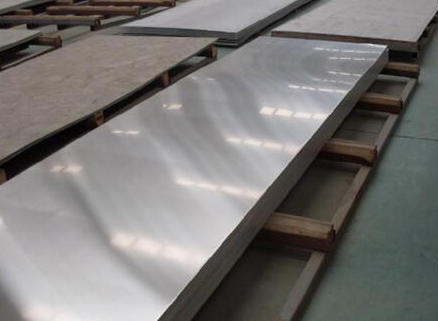In the realm of aluminum alloys, 3003 stands out as a remarkable choice, known for its versatile properties and wide-ranging applications. This aluminum-manganese alloy demonstrates exceptional strength, making it a popular choice across various industries.

Unveiling the Versatility and Strength of 3003 Aluminum Alloy
One of the prominent features of 3003 aluminum alloy is its excellent corrosion resistance. This property is attributed to the formation of a protective oxide layer on the surface, rendering it highly resistant to atmospheric corrosion. As a result, it finds extensive use in marine and chemical industry applications where exposure to corrosive environments is prevalent.
Additionally, 3003 aluminum alloy boasts excellent workability. Its malleability and formability make it ideal for intricate forming operations, such as bending, stamping, and drawing. Manufacturers often utilize 3003 alloy to craft intricate parts and components for automotive, packaging, and architectural applications.
Furthermore, this alloy is weldable, allowing for ease of joining and fabrication without compromising its structural integrity. Welding processes like resistance welding, gas welding, and arc welding can be employed with 3003 aluminum, providing flexibility in manufacturing and design.
Another appealing aspect of 3003 aluminum is its conductivity. While not as high as pure aluminum (1100), 3003 still possesses good electrical and thermal conductivity. This property finds application in heat exchangers, power grid lines, and cooking utensils.
The versatility of 3003 aluminum extends to its appearance as well. It can be easily finished through various surface treatments, such as anodizing or painting, providing aesthetic appeal and enhanced durability. Architects and designers often leverage these qualities to create visually appealing structures.
Moreover, 3003 aluminum is lightweight, making it an excellent choice for applications where weight is a concern. The transportation industry extensively uses this alloy in vehicles, aircraft, and trailers to reduce overall weight while maintaining structural strength.
In the realm of consumer goods, 3003 aluminum finds its way into household items, including cooking utensils, food containers, and beverage cans. Its food-grade properties, combined with corrosion resistance, make it a safe and reliable choice for handling consumables.
3003 aluminum alloy presents a compelling package of properties, making it a versatile and widely adopted material in various domains. From its anti-corrosion properties to its excellent workability and electrical conductivity, 3003 aluminum continues to play a vital role in shaping our modern world, offering a sustainable and efficient solution for a multitude of applications.
